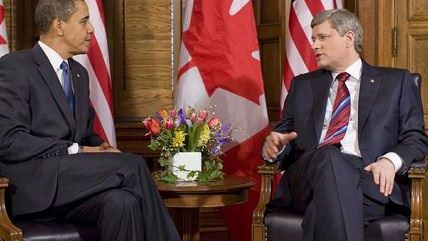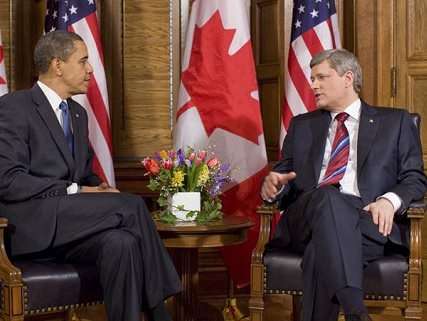Federal Government in Good Fiscal Shape After Spending Cuts Implemented
In Canada


In Canada:
The federal government is in good fiscal health after it introduced broad spending cuts with the goal of eliminating its budget deficit by 2015, the PBO [parliamentary budget office] said in a report on Thursday on the long-term fiscal sustainability of Canada's various levels of government.
The PBO, which was set up by the Conservative government in 2006, has a mandate to provide independent analysis of Canada's finances to legislators.
"PBO's projection of net debt suggests federal debt is on track to achieve the government's G20 (Group of 20) commitment to a debt-to-gross domestic product ratio of 25 percent by 2021," the report said.
Prime Minister Stephen Harper announced the target at the Group of 20 summit in St. Petersburg, Russia, earlier this month. Canada ran 11 straight years of budget surpluses before the 2008-09 financial crisis, and Harper is eager to balance the books again before the next election, scheduled for October 2015.
The last time the US ran a budget surplus, meanwhile, was in 2001, the third of three post-1995 government shutdown years that saw the federal books balanced. Between 2009 and 2012, on the other hand, the federal government ran up the highest deficits, when compared to the size of the economy, since World War II.
Canada's parliamentary budget office does warn of rising debt in Canada's provinces absent an effort to cut spending (or raise taxes). The federal government transferred some healthcare costs to the provinces in its attempt to balance the budget. So a country of 35 million, then, at almost ten times less than the US population, has determined government healthcare costs are best managed at the provincial (state) rather than federal level. Implementation of Obamacare, largely funded by the federal government even when run by states, begins today despite the US federal government's partial shutdown.


Show Comments (5)